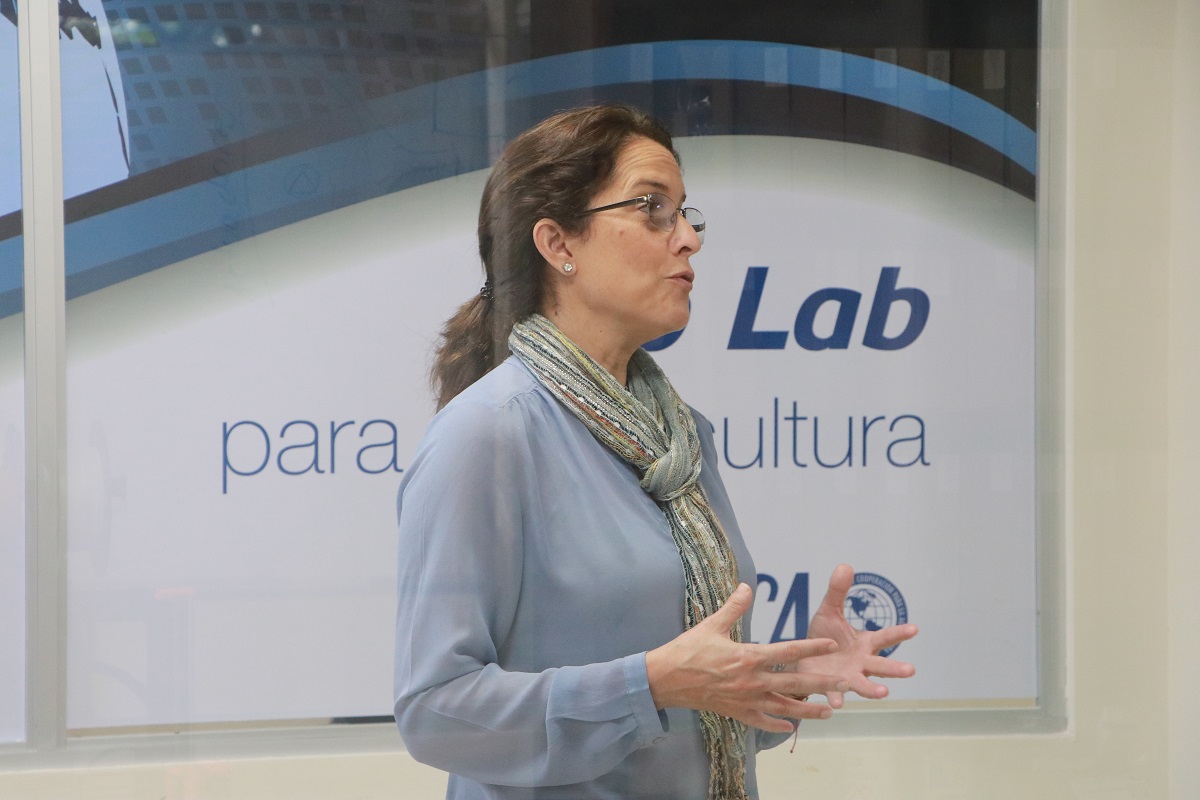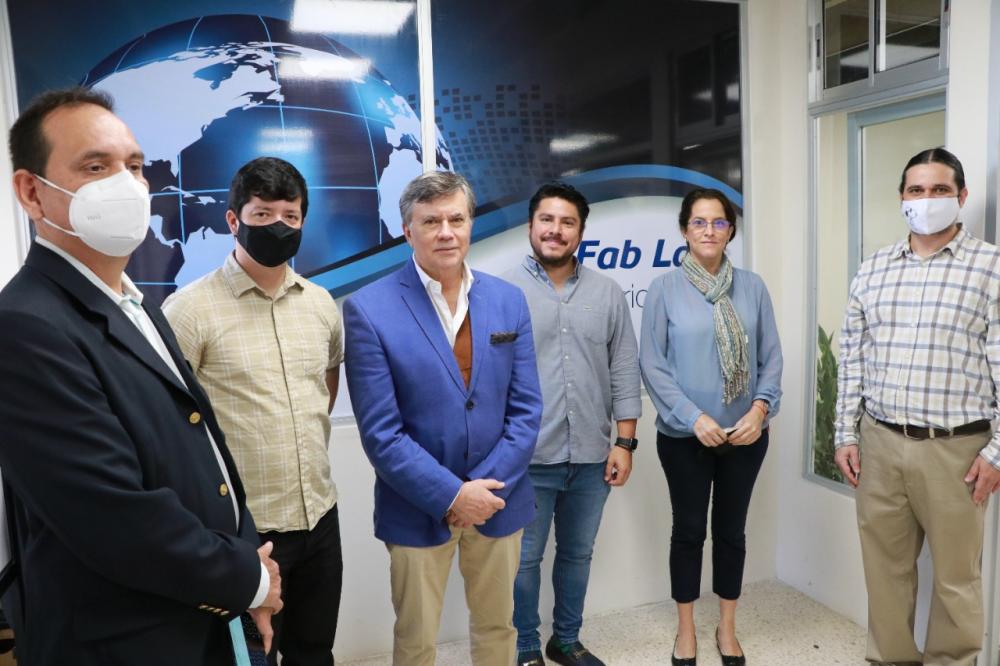The deputy minister also stated her interest in creating experiences in El Salvador like those of Costa Rica’s ICAFÉ and IICA to promote research and innovation in the coffee sector.

San Jose, 11 June 2021 (IICA). During a visit to the headquarters of the Inter-American Institute for Cooperation on Agriculture (IICA) in Costa Rica, Lily Pacas, Deputy Minister of Agriculture and Livestock of El Salvador, explained that her country’s Master Plan to Rescue Agriculture would be a framework to relaunch Salvadoran coffee production, a chain respected worldwide for high-quality production.
“A key pillar of the Master Plan to Rescue Agriculture is rescuing national coffee production. For many years, El Salvador was a benchmark for research, production, and coffee quality. Along those lines, we want to regain international recognition and the benefits gained by rescuing coffee production in the country”, expressed the officer, who is also a renowned barista.
Pacas indicated that “the coffee forests are the primary source of rural employment” and mentioned that they “represent 9% of the national territory. As such, the environmental and hydrological benefits represented by the coffee forests are key to the environmental sustainability of our country, in addition to the economic component—the financial contribution to national development”.
The deputy minister also stated her interest in creating experiences in El Salvador like those of Costa Rica’s ICAFÉ and IICA to promote research and innovation in the coffee sector.
“Part of this trip and the different activities we are doing at institutes like ICAFÉ and now IICA is to determine which experiences we can take back to El Salvador as topics of research, because research is the foundation that will allow us to achieve the growth we expect within the plan. We are already working on regulations to guarantee the quality of the vegetable matter that coffee requires. Because coffee is a slow-growing crop, we need to ensure that we are planting high-quality product and matter”, explained the deputy minister.
Youth and innovation
After a tour of IICA’s facilities, during which she visited the Interpretive Center for Tomorrow’s Agriculture (CIMAG, in Spanish), the Fab-Lab for innovation on agriculture, and the Typical Rural House, the deputy minister from El Salvador addressed innovation and generational changeover in agriculture.
“At IICA’s Fab-Lab, we saw how we could incorporate different products into innovation. One situation coffee production faces in El Salvador is the lack of involvement from the youth. If we were to promote projects like this one, it would capture the interest of young people, which would have a positive impact in the field and rural areas. We have many projects in the works”, she assured, highlighting the importance of sharing experiences and information.

“El Salvador is definitely a coffee-producing country; we need to raise awareness of the importance of coffee for our country. In El Salvador, we breathe coffee. Due to the lack of adequate public policy, however, this has gradually fallen off over the years, but now is our chance to return a sense of pride to our coffee farmers”, said Pacas.
The Central American country has 24,000 coffee producers, of which about 90% are small scale. “The big issue is promoting a coffee rescue project, working for the sustainability of small producers, and feeling proud of the coffee we produce, demonstrating and reinforcing that pride as much as possible,” she concluded.
Video in Spanish
More information:
Institutional Communication Division.
comunicacion.institucional@iica.int











